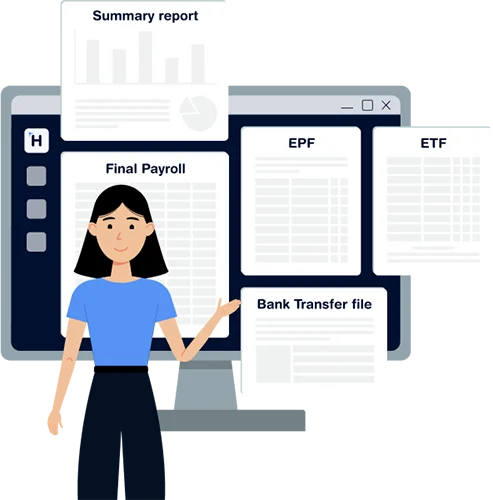What is Gratuity?
Gratuity is one of the social security provisions mandated by the Sri Lankan government in addition to EPF and ETF funds. As the name suggests it aims to reward faithful and loyal employees of the company. While the government pension scheme protects the employees in the public sector, these three types of provisions help make sure that private sector employees will be equally protected in times of need.
Although important, as a fresh startup with all new employees gratuity might be far down the line for you. However, it is a wise investment to forecast and plan for gratuity payments as your company ages and your employees become stable.
The Payment of Gratuity Act No. 12 of 1983 specifies that gratuity applies in two scenarios.
- Part 1 – workers in the plantation sector who ceased to be employed upon the take-over of estates or lands which were vested in the Land Reform Commission.
- Part 2 – It makes every employer who has 15 or more workers on any day during a 12 month period are liable to pay gratuity
Since most of you will identify with the second category listed above we will take a closer look at it.
Who’s liable to pay?
There are two conditions that must be satisfied inorder for a company to be liable to pay gratuity.
- Employer has 15 or more employees employed on any day during a 12 month period
- Worker has completed five years or more of service prior to termination
Moreover, Employees who fulfill the qualifications in the payment of Gratuity Act No 12 of 1983, exclusive of domestic servants, personal chauffeurs, employees entitled to a pension under any non-contributory pension scheme, Government Employees, employees in Local Authorities and employees under Co-operative commission are eligible for gratuity.
How to Calculate Gratuity
In Such a case where your employee has completed five years or more of service prior to termination, the employer must pay that employee half a month’s wages or salary for each year of completed service within a period of 30 days. His or her last drawn salary will be used in this calculation.
If the employee is a piece-rated worker,daily wage or salary shall be computed by dividing the total wage received by him/her for a period of three months immediately preceding termination, by the number of days worked by him in that period.
Total wage within last 3 months / Number of days worked
Keep in mind that the failure to pay the gratuity amount within a period of 30 days from the point of termination allows your employee to submit a complaint to the Labour office in the area where the institution he served is located.
Important
Although it isn’t clearly advised by the Department of labour, it is common good case practise keep proof of the gratuity payment to your employee.
FAQs
Which categories of workers cannot benefit from the Payment of Gratuity Act?
- Domestic workers
- Personal chauffeurs in private households
- Employees of co-operative societies
- Employees who are entitled to a pension under any non-contributory pension scheme
- Workmen designated under the Indian Repatriates (Special Provisions) Law of 1978
- Any establishment employing less than 15 persons during the period of 12 months immediately preceding the termination of services of a worker
Can my gratuity payment be forfeited?
Your gratuity can be forfeited only if you have been terminated for reasons of:
- Fraud
- Misappropriation of funds of the employer
- Willful damage to property of the employer
- Causing the loss of goods, articles or property of the employer
Are Migrant workers also included under the Pensions Scheme?
There were attempts by the government to introduce a pension scheme for migrant workers and private sector employees in 2011.
However since the provisions in the Bill were not fair and equitable towards the private sector as well as migrants, mass protests prevented the Bill from being read in Parliament.
Migrants are however entitled to become voluntary members of the Employees’ Trust Fund and make monthly contributions to the Fund.



